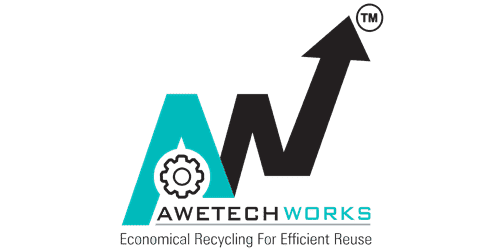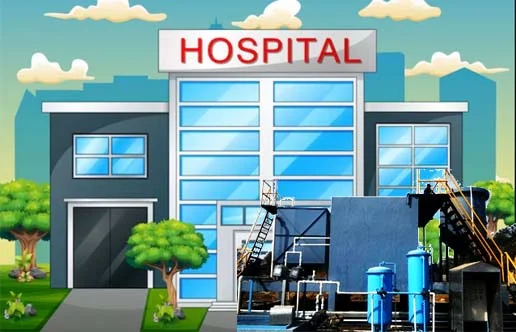

STP Installation
400+
Waste Water Treated Per Day
70 MLD
Inhouse Manufacturing
Yes
Mega Project
45 MLD ETP at L&T Ludhiana
Sewage Treatment Plant – STP for Hospitals
| Capacity | Customizable to meet the specific requirements of hospitals, ranging from small clinics to large medical centers. |
| Treatment Technique | Advanced biological treatment processes such as activated sludge, extended aeration, or membrane bioreactors (MBRs) tailored for hospital wastewater. |
| Inlet Flow Rate | Variable depending on the size and patient capacity of the hospital, ensuring efficient treatment of sewage generated. |
| Water Source | Wastewater generated from various hospital activities including patient care, laboratories, and sanitation facilities. |
| Automation Grade | Advanced automation and control systems to optimize treatment processes and ensure consistent performance. |
| Operation & Maintenance Support | Comprehensive support services to ensure the smooth operation and maintenance of the STP. |
| Compliance | Designed to meet or exceed regulatory requirements for wastewater discharge and environmental standards. |
| Turnkey Project with Civil | Provides turnkey solutions encompassing design, construction, installation, and commissioning of the STP, along with civil engineering works as required. |
| Government Compliances & Approval | Ensures compliance with local and national regulations governing wastewater treatment and discharge, obtaining necessary permits and approvals. |
Customized Designs : Tailored STP solutions designed to address the unique wastewater characteristics of hospitals, including high organic loads and potential presence of pathogens.
Efficient Treatment Processes : Utilization of advanced biological treatment techniques to effectively remove contaminants and ensure high-quality effluent.
Pathogen Removal : Specialized processes to eliminate pathogens and ensure the safety of treated effluent, crucial for hospital wastewater.
Reliable Performance : Robust design and advanced automation to ensure reliable operation and consistent treatment performance.
Compliance Assurance : Adherence to regulatory standards and environmental requirements, ensuring compliance with discharge limits.
Odor Controll:Implementation of odor control measures to mitigate unpleasant odors associated with sewage treatment.
Space Optimization: Compact design options to maximize space utilization, ideal for hospitals with limited footprint availability.
Energy Efficiency: : Integration of energy-efficient components and processes to minimize operational costs and environmental impact.
Scalability :Scalable design options to accommodate future expansion or changes in wastewater generation patterns.
Expert Support :Dedicated technical support and maintenance services to address any operational issues and ensure optimal performance.
| Plant Name | Prices |
|---|---|
| Hospitals | Approx Price : Rs. 150000 |
customer testimonials
The STP provided by Awetech Works has revolutionized our hospital's wastewater management Our community greatly benefits from the environmentally friendly solution provided
Why Sewage Should Be Treated for Hospitals
Effective sewage treatment for hospitals is essential for several reasons
Public Health Protection:
Proper treatment of hospital wastewater prevents the spread of pathogens and contaminants, protecting public health and safety.
Environmental Protection:
Treatment reduces the environmental impact of hospital wastewater by removing pollutants and ensuring compliance with discharge standards.orts.
Regulatory Compliance:
Hospitals are required to meet regulatory requirements for wastewater discharge, and effective treatment is necessary to comply with these standards.
Resource Conservation:
Treatment allows for the safe reuse of water resources, reducing the demand for freshwater and promoting sustainability.
Community Relations:
Responsible wastewater management demonstrates a hospital’s commitment to environmental stewardship and public well-being, enhancing its reputation in the community.
Sewage Treatment Plant (STP) Process for Hospitals
The STP process for hospitals involves several stages to effectively treat wastewater and ensure the safety of the treated effluent. These stages may include
Screening and Pre-treatment
Removal of large solids and debris from the incoming wastewater through screening and sedimentation processes.
Biological Treatment
Utilization of specialized biological treatment processes such as activated sludge or membrane bioreactors to biologically degrade organic pollutants and pathogens present in the wastewater.
Disinfection
Treatment of the effluent to eliminate any remaining pathogens and ensure the safety of the treated water for discharge or reuse.
Filtration and Polishing
Further filtration and polishing processes to remove any remaining suspended solids and improve the quality of the treated effluent.
Monitoring and Control
Continuous monitoring of key parameters such as flow rate, dissolved oxygen, and pH levels to optimize treatment efficiency and ensure compliance with regulatory standards.
What Makes Us Different ?
Right Approch
Effluent Characteristics & Site Conditions Total cost of ownership over 10 Years of lifetime. Legal Compliance and desired treated water parameters.
Clean Commitment
On time project execution, periodic Operation and Maintenance training and perfect paperwork is our core strength. We consider our job is done when our client gets habitual of using the recycled water and gets all legal clearance from authorities.
Expert Solutions
Our team of experts creates the most economical, efficient and Maintenance free design that will be best for your application.
Frequently Asked Questions [FAQ]
Hospital wastewater may contain a variety of contaminants, including organic matter, pathogens, pharmaceuticals, and chemicals used in medical procedures.
Sewage treatment ensures the safe disposal of wastewater, protects public health, and helps hospitals comply with regulatory requirements for environmental protection.
Yes, STP systems can be customized to accommodate the size, capacity, and wastewater characteristics of hospitals, ensuring efficient treatment and compliance.
Important factors include treatment capacity, compliance with regulatory standards, energy efficiency, space requirements, and ongoing maintenance and support.
Yes, treated sewage can be reused for irrigation, toilet flushing, cooling, and other non-potable applications, depending on the quality of the treated effluent and local regulations.
Effective treatment removes pathogens and contaminants from wastewater, reducing the risk of infection transmission and protecting the health of patients, staff, and the community.
Advanced technologies such as membrane bioreactors, UV disinfection, and remote monitoring systems enhance treatment efficiency, reliability, and compliance with regulatory standards.
Regular maintenance, monitoring, and staff training are essential to ensure the optimal performance and longevity of STP systems in hospitals.
Treatment reduces pollution of water bodies, conserves water resources, and minimizes the ecological impact of hospital wastewater on aquatic ecosystems and communities.
Yes, hospitals must comply with local, state, and federal regulations governing wastewater discharge, treatment standards, and environmental protection measures.
In addition to environmental benefits, an STP helps hospitals manage wastewater efficiently, reduces dependency on external sewage systems, and mitigates the risk of sewage-related incidents within the facility.
Important factors include treatment capacity, compliance with regulatory standards, energy efficiency, space requirements, and ongoing maintenance and support.
Yes, treated sewage can be reused for irrigation, toilet flushing, cooling, and other non-potable applications, depending on the quality of the treated effluent and local regulations.
Effective treatment removes pathogens and contaminants from wastewater, reducing the risk of infection transmission and protecting the health of patients, staff, and the community.
Advanced technologies such as membrane bioreactors, UV disinfection, and remote monitoring systems enhance treatment efficiency, reliability, and compliance with regulatory standards.
Regular maintenance, monitoring, and staff training are essential to ensure the optimal performance and longevity of STP systems in hospitals.
Treatment reduces pollution of water bodies, conserves water resources, and minimizes the ecological impact of hospital wastewater on aquatic ecosystems and communities.
Yes, hospitals must comply with local, state, and federal regulations governing wastewater discharge, treatment standards, and environmental protection measures.
Efficient operation requires regular monitoring of key parameters, timely maintenance and repairs, staff training, and adherence to operational protocols and safety measures.
While initial investment costs vary depending on factors such as capacity and technology, operational savings, regulatory compliance benefits, and potential revenue from resource recovery can offset long-term expenses.
Join Over +15,000 Happy Clients!








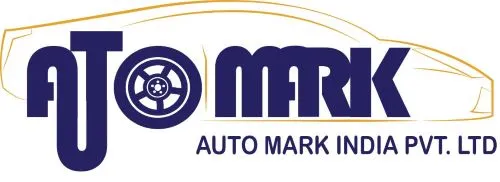



































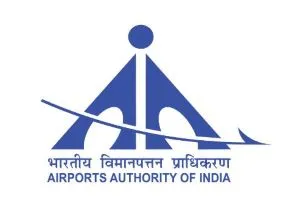















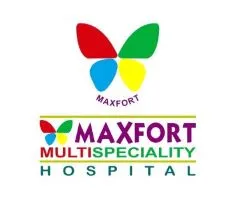











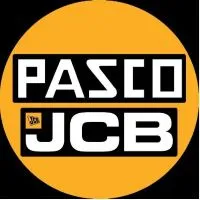









Salient Features
Concept to Commissioning
In-house team for Design. Engineering, Martufacturing, Execution and Service support gives full control over project ownership and quality
Experienced Team
Entire team possess average Industrial Experience of 7+ Year and have proven track record
Tailor Made Solutions
Our wide experience of solution design in multiple technologies enable us to choose technology that is most economical and efficient in long run.
Future Ready Products
Automation is the heart of every Awetech product. Our products performance can be monitored from remote location.
Life Cycle Management
We can take complete responsibility of product operation, maintenance, upgradation and comply latest pollution control board norms.
Comply Pollution Norms
Our design philosophy and documentation is in line with quidelines set by legal authorities. We provide support to take required approvals from pollution department
Awetech Works – The Leading Solution Provider of Sewage Treatment Plant (STP) for Hospitals
At Awetech Works, we understand the critical importance of efficient and sustainable wastewater management in hospital settings. As a leading solution provider of Sewage Treatment Plants (STP) tailored for hospitals, we are committed to delivering innovative, reliable, and environmentally responsible solutions to meet the unique challenges of healthcare facilities.
Our Expertise and Commitment: Backed by years of experience and a team of skilled professionals, we specialize in designing, implementing, and maintaining STP systems that ensure the safe and effective treatment of hospital wastewater. Our expertise extends beyond technical solutions; we understand the regulatory landscape, environmental concerns, and operational intricacies specific to the healthcare industry.
Tailored Solutions for Hospitals: We recognize that hospitals have distinct wastewater treatment needs due to the nature of their operations and the diversity of contaminants present in their wastewater streams. That’s why we offer customized STP solutions tailored to the size, capacity, and requirements of each hospital, ensuring optimal performance and compliance with regulatory standards.
Focus on Environmental Sustainability: At Awetech Works, environmental sustainability is at the forefront of everything we do. Our STP solutions are designed to minimize the environmental impact of hospital wastewater, reduce pollution, and conserve precious water resources. By incorporating advanced treatment technologies and innovative processes, we help hospitals operate responsibly and contribute to a cleaner, healthier environment.
Customer-Centric Approach: We believe in building strong, long-lasting partnerships with our clients based on trust, integrity, and exceptional service. From initial consultation to system design, installation, and ongoing support, we are dedicated to delivering value at every stage of the project. Our team of experts is always available to provide technical guidance, training, and assistance to ensure the success of every STP project.
Join Us in Promoting Health and Sustainability: At Awetech Works, we are proud to partner with hospitals in their mission to provide quality healthcare while minimizing their environmental footprint. Together, we can create a healthier, more sustainable future for patients, staff, and communities. Join us in promoting health and sustainability through responsible wastewater management solutions.
Our Design Philosophy
Analyze & Inspect
"You cannot improve those things
which you can not evaluate”.
✓ Analyze Water or Waste Water
Parameters.
✓ Inspect site to check availability of
Space and utilities.
Understand Application
Our Sales professionals will take detailed note of your requirement & challenges. Factors like Future expansions, end use of Water and Water depletion rate plays a very important role product designing.
Technology Selection
" Wrong selection may save you some penny initially but take out far more during operation & maintenance”. Thus, technology selection considering the soaring prices of Electricity, Manpower, Space, chemical and consumables is essential.
Design & Manufacturing
As a standard procedure we first make to-the-scale 3D design of entire project with plumbing and other connections. After discussing it with client we starts manufacturing tailor made unit in our state-of-the-art facility.
Quality Inspection
Our Ever plant has to go through the stringent Quality test, where we test the strength of fabrication, Anti Corrosion coating, Dimensions, Water leakage test and product finishing.
ENQUIRE NOW
Served Locations
-
Uttar Pradesh (UP):
Kanpur; Lucknow; Ghaziabad; Agra; Varanasi & more… -
Madhya Pradesh (MP):
Indore; Bhopal; Jabalpur; Gwalior; Ujjain & more… -
Rajasthan:
Jaipur; Jodhpur; Kota; Bikaner; Ajmer & more… -
Jammu and Kashmir (J&K):
Srinagar; Jammu -
Gujarat:
Ahmedabad; Surat; Vadodara; Rajkot; Bhavnagar & more… -
Punjab:
Ludhiana; Amritsar; Jalandhar; Patiala; Bathinda & more… -
Delhi National Capital Region (NCR):
Delhi; Gurgaon (Gurugram); Noida; Faridabad; Ghaziabad & more… -
Maharashtra:
Mumbai; Pune; Nagpur; Thane; Nashik & more…


